A Stylish Sofa Starts Here – Learn the Art of Styling a Couch with These Designer-Approved Tips That Always Work
From pillow sizes to throw placement, everything you need for a perfectly curated couch

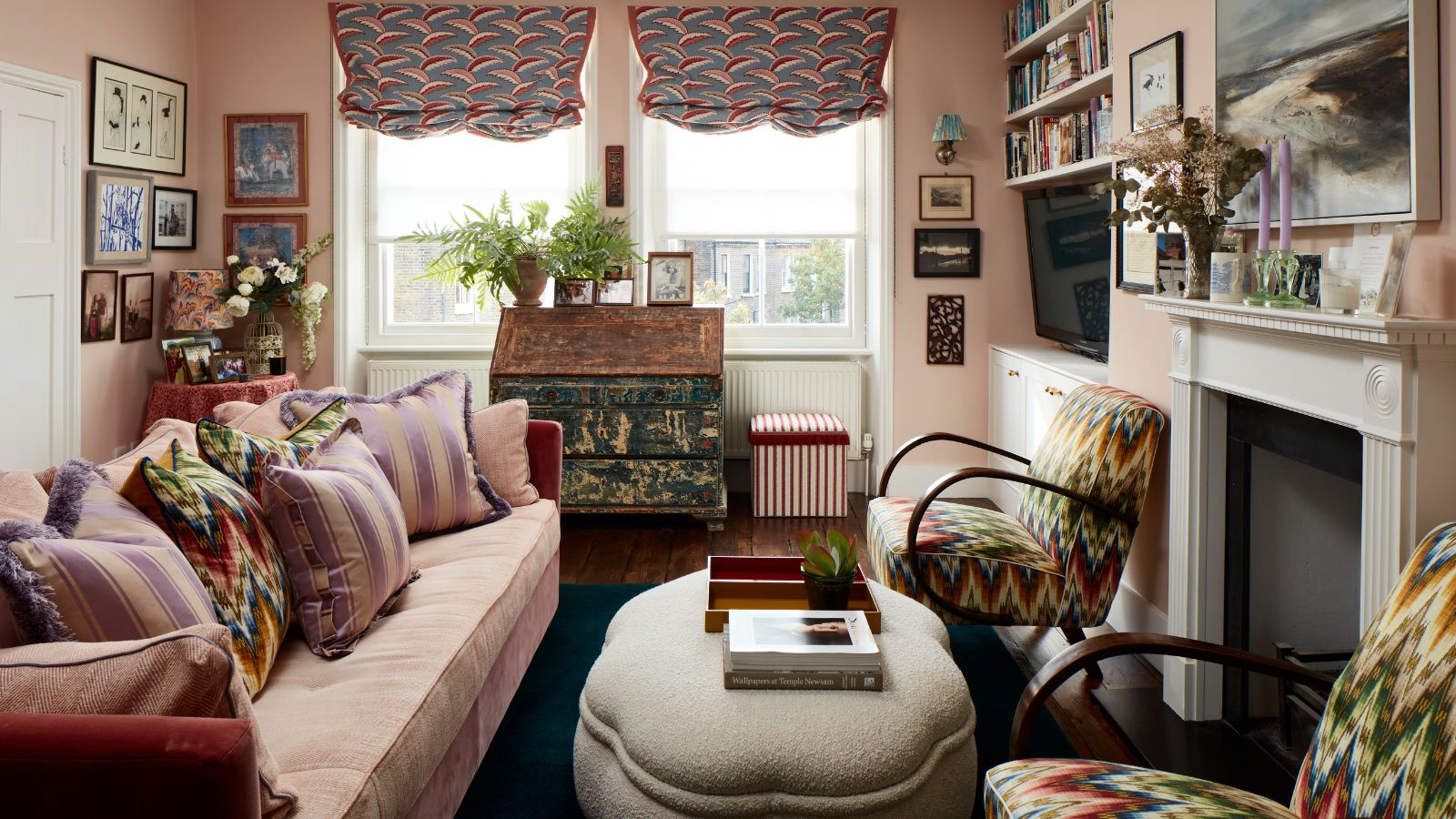
Styling a couch might seem simple in theory – add a few cushions, a throw, and call it done – but I've never been able to achieve that beautifully dressed designer look on my own.
As the visual anchor of the entire space, the best couch should be treated as such, and the way it is styled can make all the difference to your living room. The challenge is that sofas demand proportion without bulk, color without chaos, and layers without clutter.
This means that your cushion choices need to feel considered, throws intentional, and every pattern and print chosen in harmony. Overwhelmed? Me too. So, I've turned to the experts to help decode the art of styling a couch like a pro. Here are their top tips (and industry secrets) that always work.
How to Style a Couch Like a Designer
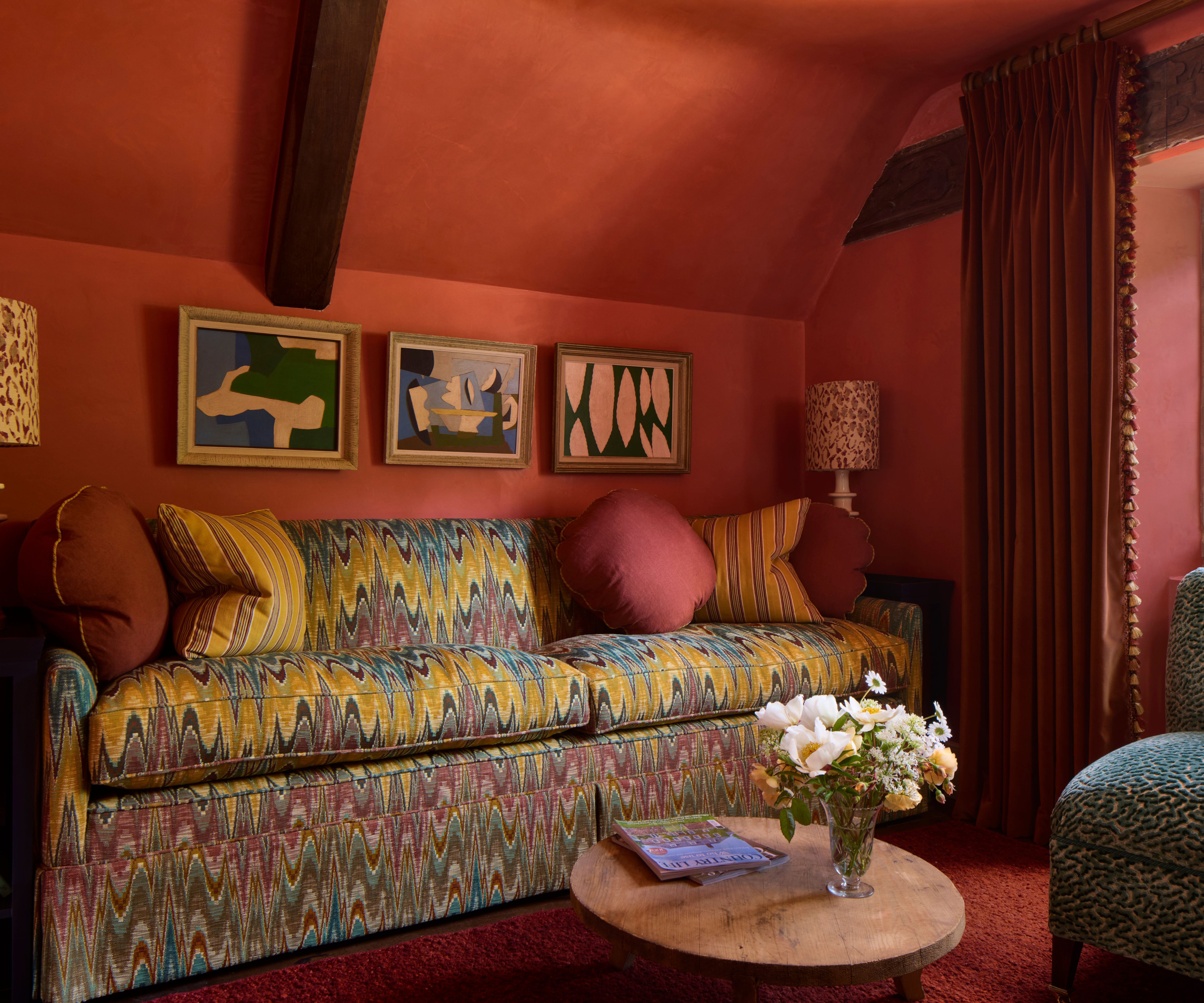
If you’re unsure where to start, the good news is that sofa styling becomes far less daunting once you understand the key principles designers rely on time and again.
Below, they break down the elements that matter most – from proportion and pattern to texture, fill, and finishing touches – so you can create a couch that looks thoughtfully layered and beautifully intentional, no matter your interior design style.
1. Start With Pillow Proportion
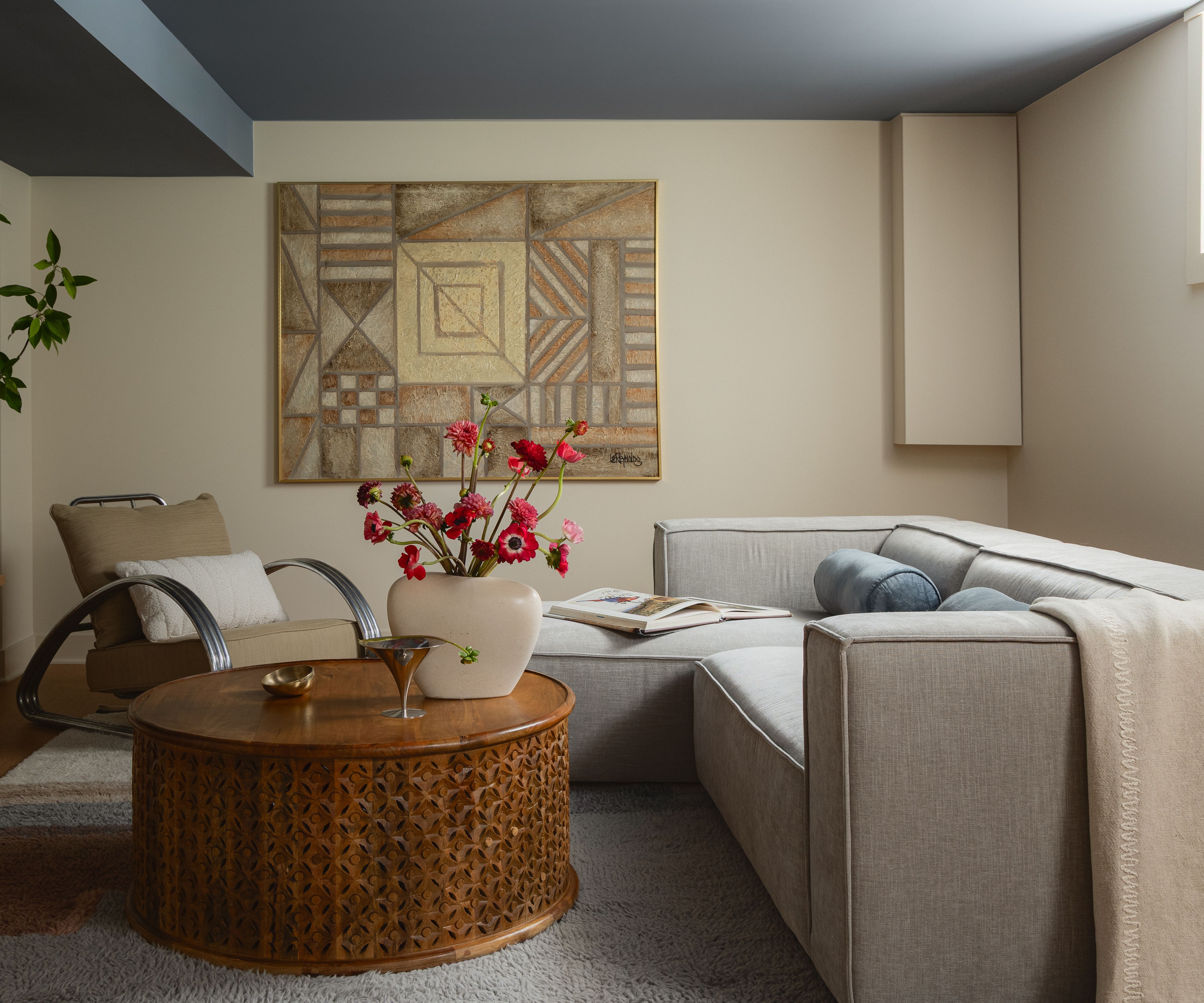
The quickest way to elevate a couch is to get the pillow proportions right, and according to designer Bethany Adams, this is where most people slip up.
'Sofas need two elements to feel complete: pillows and a throw blanket,' says Bethany. 'Sounds simple enough, but I’ve seen many a disaster made out of these two ingredients. Pillows should be in direct proportion to your sofa. Most big-box retailers sell pillows in a single size – e.g. 16” x 16” – which is woefully undersized for most sofas. A typical sofa will need at least 20” square pillows in the corners, plus a single lumbar pillow,' she advises to help anchor the arrangement.
Design expertise in your inbox – from inspiring decorating ideas and beautiful celebrity homes to practical gardening advice and shopping round-ups.
Equally important is editing your mix of throw pillows, Bethany adds. 'Decide which of your pillows will be the showstopper and let the others play a supporting role,' she suggests. That means one patterned or textural hero piece, paired with complementary solids or quieter prints around it.
2. Master the Art of Mix and Match
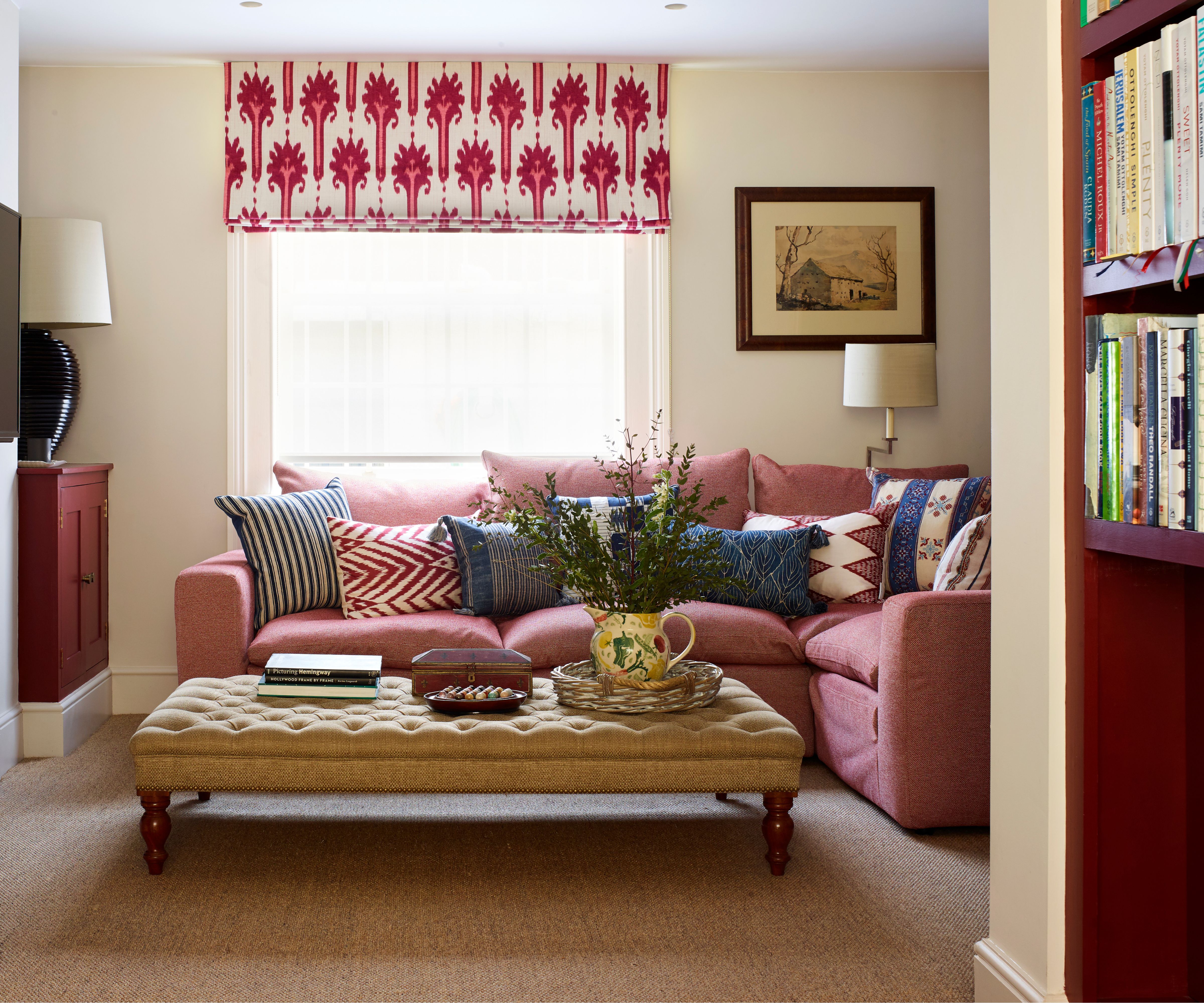
Mixing patterns and colors might feel intimidating, but designer Sean Symington insists it’s all about playing with scale. 'When mixing patterns, I like to play with scale,' says Sean. 'If the sofa fabric has a large-scale pattern, I’ll go for small-scale prints on the cushions, and vice versa.'
'If the sofa is plain, however, you can have a bit of fun and do either,' Sean suggests. 'I also like using contrast piping or fringe in a color that ties in with other tones in the room or pulls a shade from one of the cushion fabrics. It’s such an easy way to make everything feel cohesive without being too coordinated.'
A good starting point is to pick a couple of prints that you love and then work neutrals and plains around them. This is a great way to refresh a scheme seasonally, too – your couch and plain cushions stay year-round, but you swap in new prints each season to give your space a new look.
For Laura Williams of Living Oak Interior Design, harmony starts with color. 'I like to mix and match patterns with similar color tones,' she says. 'A subtle checkered blanket with a block print pillow is a perfect combination in a related colorway.' Cath Beckett, co-founder of Yellow London, agrees, adding: 'Mix cushions with different colors or patterns to add visual interest. Sofas with textured or bold fabrics make a room feel more inviting and allow you to introduce brighter colors or striking patterns that won’t take over.'
The key is to let different textures and patterns play off each other while still keeping within a unified living room color scheme.
3. Layer Textures for Warmth and Depth

Speaking of texture, a balance of materials and tactility is essential for styling a couch that feels inviting rather than flat. 'Another thing to consider when styling your pillows is how you might introduce texture to the arrangement,' adds Emma Sims Hilditch of interior design agency Sims-Hilditch. 'Using natural fabrics or heavily patterned and printed materials paired with more neutral fabrics creates a pleasing contrast and helps to inject life into a room.'
Designer Kathy Kuo also leans heavily on a variety of textures, favoring 'pillows covered in soft velvets, rich tapestry patterns, and textural materials like wool shag' to create instant depth. 'An expertly styled sofa starts with the pillows,' she adds. 'For a cozy, layered look, I love to include one or two throw pillows in each corner of the sofa, mixing patterns and textures to infuse plenty of dimension and visual interest.'
Birdie Fortescue echoes the importance of that balance: 'Styling a sofa is all about balance, texture and proportion. I like to use one or two colors as a starting point, and mix cushions in varying sizes and patterns to create comfort and depth. For example, I like to include a geometric print with a floral design.'
Consider pairing a smooth linen West Elm's Classic Linen Pillow Cover with a nubby boucle this Boucle Throw Pillow from CB2, or mixing a ruffled cotton pillow like this Slub-Weave Cushion Cover from H&M with a soft velvet McGee & Co.'s Bellevue Velvet Pillow Cover. These subtle contrasts create a richness that your couch (and your living room) will benefit from instantly.
4. A Throw Blanket Can Make or Break It
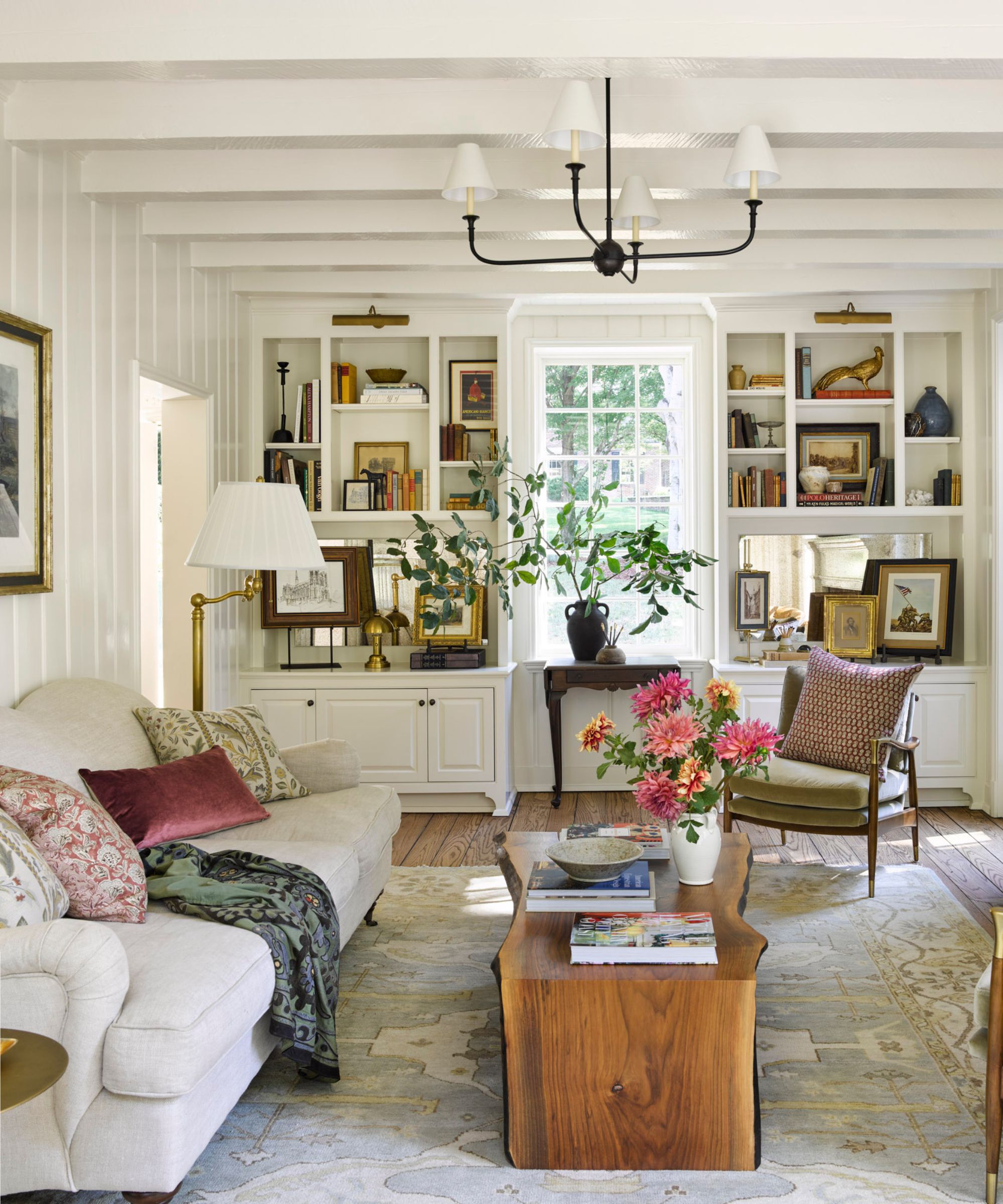
A good throw blanket always adds softness and warmth, but designers say it should be chosen intentionally rather than as an afterthought that you pick up on a whim.
Bethany Adams advises pairing the material of your throw with the mood of your couch: 'For the throw blanket, choose a material and fabrication that is in keeping with your sofa,' she continues. 'For example: a chunky knit throw, like the Colossal Handknit Throw from Pottery Barn, belongs on your comfy, cozy family room sectional, while your boucle living room sofa should get something more chic and manageable, like the Cashmere Tassel Throw from Cozy Earth.' This helps the throw enhance rather than compete with the sofa.
Birdie Fortescue adds that throws are also a useful way to break up a large expanse of fabric – but warns against over-styling. 'Layering in a throw adds softness and helps break up a large expanse of fabric, but I always leave enough space so the sofa still feels inviting and usable,' she says.
5. Don't Overlook the Power of Filling
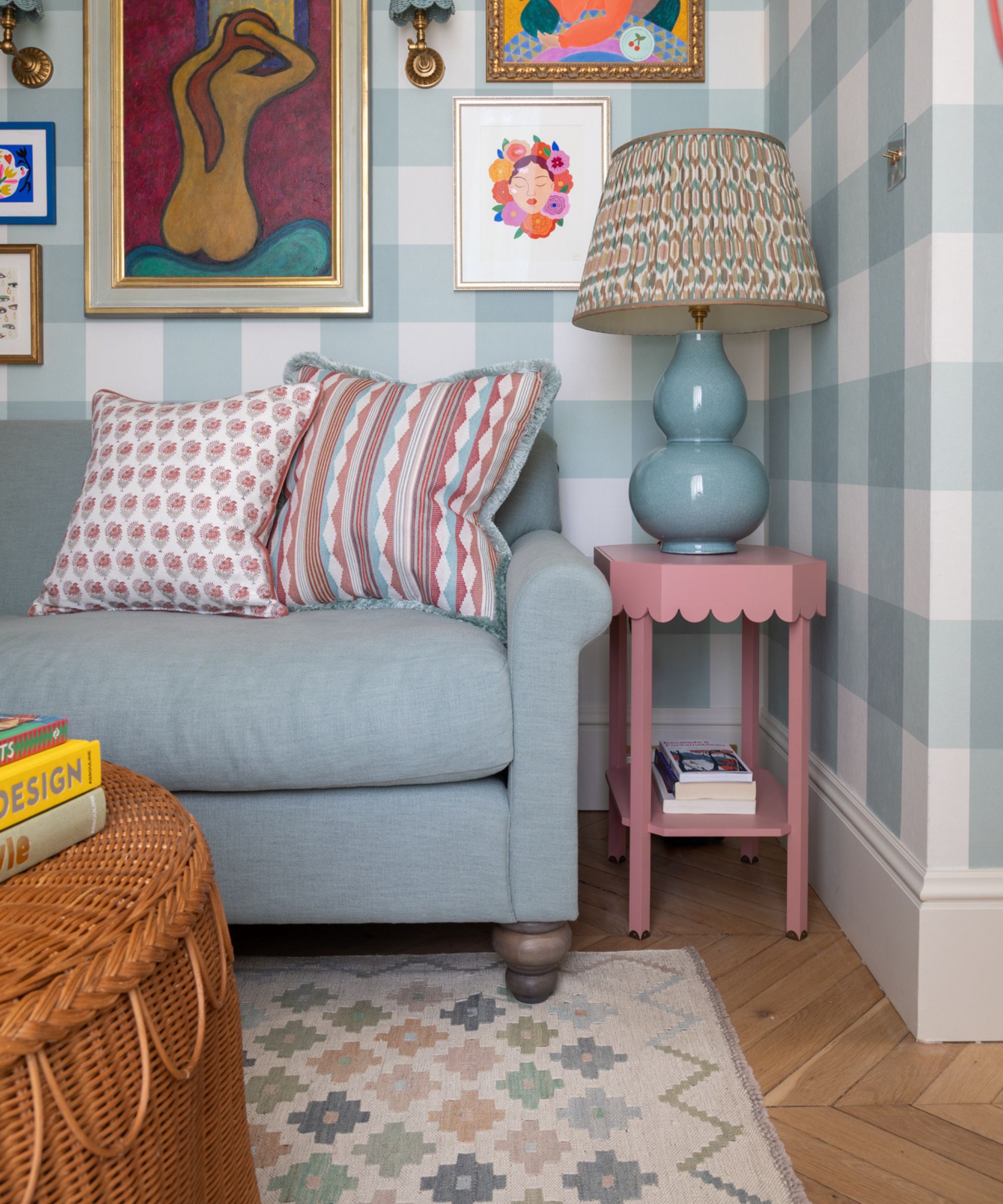
Even the most beautiful cushion covers will fall flat (literally and stylistically) without the right filling. Designers insist that what’s inside matters just as much as choosing a chic cover.
'I love layering sofas with big, generous cushions, it’s one of my favourite ways to make a space feel inviting and lived-in,' advises Sean. 'My top tip for that beautifully full cushion look is to always go for an inner that’s slightly larger than the cushion cover. It gives you that full, luxurious shape that makes cushions look so inviting.'
It’s an easy upgrade that instantly elevates the entire sofa. Material matters, too. Kathy Kuo recommends: 'Feather and down are far and away the most comfortable fill materials (perfect for sneaking in an impromptu nap!), as well as the easiest to shape.'
The right inner cushion will help to create that sink-in softness while still allowing you to perfect the sculpted, designer look. Crate & Barrel's Feather-Down Fill 20"x20" Pillow Insert ticks the boxes on luxurious material and size, too.
6. Provide a Mix of Pillow Shapes and Sizes
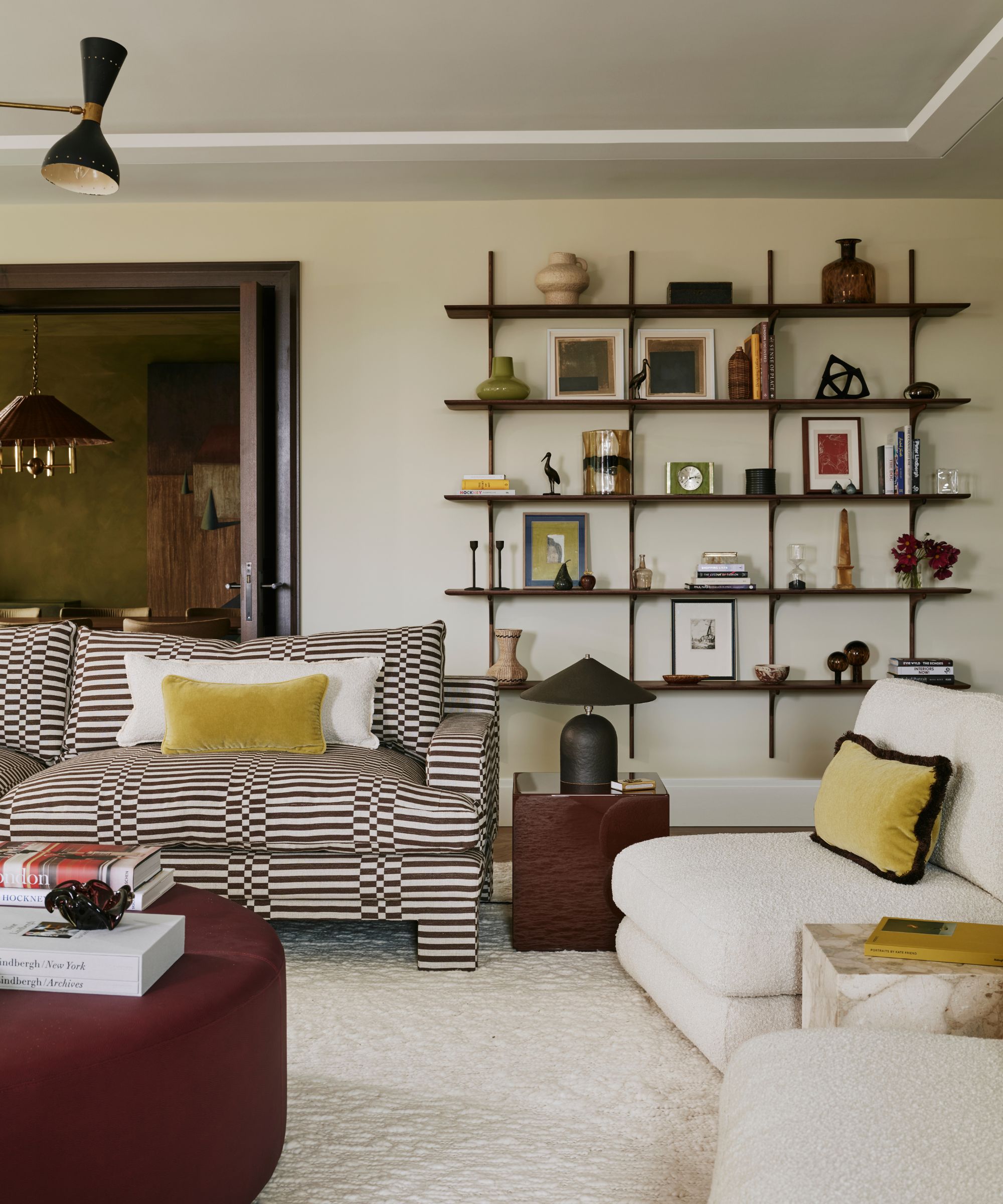
A well-styled couch relies on variation, and mixing pillow shapes and sizes is one of the most effective ways to add interest and depth. Start by choosing cushions in two or three sizes – small, medium, and large – and layering them thoughtfully.
Larger pillows at the back create height and structure, while medium and smaller ones sit in front to build dimension. Incorporating different shapes, such as squares paired with a lumbar or bolster pillow, helps to create further interest.
'Adding a lumbar pillow in the center of the sofa and bolster pillows on the ends is a clever way to create a tiered look that highlights a variety of shapes,' Kathy adds.
The rule of three plays a part here, too. Odd numbers tend to look more natural and visually appealing, so styling with three or five pillows often results in the most balanced composition.
Couch styling essentials
Whether you prefer a minimal scheme or a more decorative approach, the same principles apply when styling any living room seating: choose pillows and throws thoughtfully, layer intentionally, and always leave room for comfort. After all, a beautifully styled sofa isn’t just something to admire – it’s something to sink into, and enjoy every single day.

Charlotte is the style and trends editor at Homes and Gardens and has been with the team since Christmas 2023. Following a 5 year career in Fashion, she has worked at many women's glossy magazines including Grazia, Stylist, and Hello!, and as Interiors Editor for British heritage department store Liberty. Her role at H&G fuses her love of style with her passion for interior design, and she is currently undergoing her second home renovation - you can follow her journey over on @olbyhome